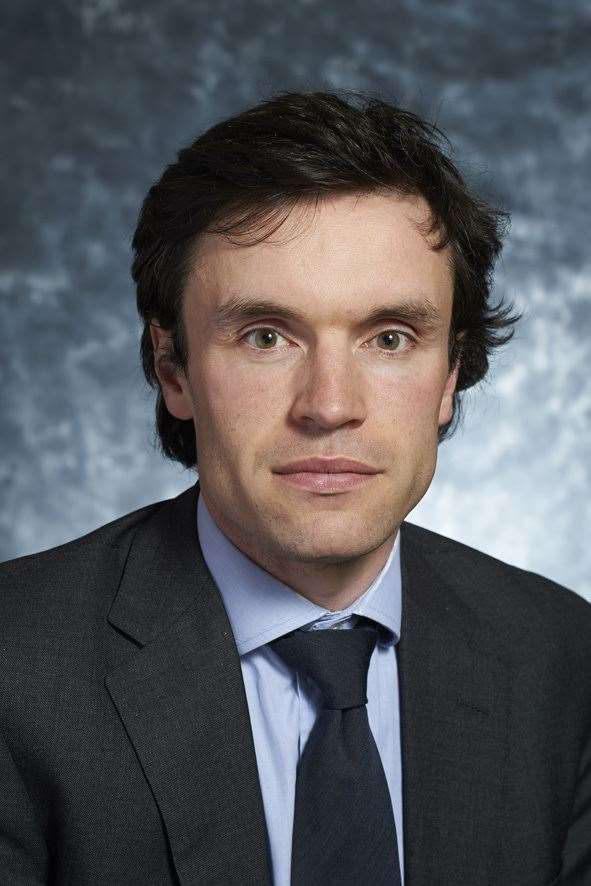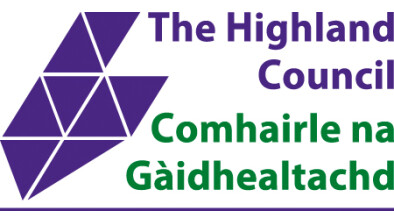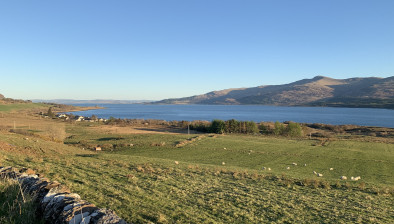Highland Council to add current year housing underspend to 2021/22 budget

Councillor Ben Thompson
Highland Council’s housing and property committee has agreed for the projected year-end Housing Revenue Account (HRA) surplus to be added back to the budget for housing repairs and maintenance for financial year 2021/22.
Committee members recognised that a reduced level of council house repairs and other maintenance work had been undertaken within the estate during the 2020/21 financial year due to COVID-19 restrictions. Reduced ability to carry out day-to-day housing repairs under the circumstances has therefore produced an underspend in the budget and a backlog of maintenance work.
Members acknowledged the volume of outstanding maintenance work still to be carried out, along with the need to ensure funds earmarked for this purpose within the current year’s budget be carried forward and utilised to increase the 2021/22 HRA Revenue budget for repairs and maintenance.
Members were also informed that progress against the mainstream HRA programme continues to be impacted by the Covid-19 pandemic with capital works in council housing currently suspended in line with government guidelines.
However, the council said it remains committed to carrying out the agreed programme when government guidelines permit.
Chair of the housing and property committee, Councillor Ben Thompson, said: “I would like to thank council house tenants for their patience and understanding of the restricted circumstances which the housing and property teams have been working within over the last 12 months.
“I am pleased that we were able to reach agreement today to carry forward unspent money for repairs into the next financial year. This will support the resources available next year to successfully provide services to our tenants.”
At yesterday’s meeting, members noted the update on the delivery of housing services during the COVID-19 emergency and the information provided on housing performance in the period 1st April 2020– 31st December 2020.
The priority for housing staff in the second phase of lockdown has been to identify and offer advice and assistance to the most vulnerable tenants and other housing clients. Prioritising communication of advice and information to all tenants.
Throughout the first weeks of January 2021 the Tenant Participation Team focused on contacting as many tenants as possible to carry out welfare checks as follows:-
- Direct contact by phone – 2,672 tenants aged over 70;
- Email contact – 688 tenants; and
- Text message contact – 8,158 tenants.
Other tenants are being contacted by area housing teams as part of their ongoing casework, housing options officers are contacting clients in temporary accommodation and housing management officers are contacting tenants in rent arrears. Officers are referring clients to local community hubs for assistance if required.
The communication emails and texts contained links to online tenant briefings, giving information about housing services and useful contacts for any tenant requiring support or assistance. Briefings were also promoted on social media and through media outlets. A tenant newsletter was also issued to all tenants providing useful contact numbers for help and advice.
Digital interaction with tenants has continued to increase throughout the pandemic with interested tenants taking part in regular ‘Teams’ meetings with staff and other tenants. Registered tenant groups and sheltered housing groups are being supported to meet online. The Tenant Scrutiny panel, Strategic Tenant Finance Group and Area Tenant Forums meet regularly online.
The Tenant Participation Team have also held informative online sessions on Energy Saving (in partnership with CAB) and on Scams (in partnership with Police Scotland and Trading Standards). Future sessions are planned on Mental Health Wellbeing (with NHS Highland) and Fuel Poverty (with Changeworks). There have also been a number of online social events for tenants, to address loneliness and social isolation, such as an online Christmas party, quiz sessions and a regular drop-in coffee morning. Regular “check-in” calls are also being carried out with individuals identified as vulnerable during the first lockdown and information is being shared as appropriate with other Council services to assist these clients.
Councillor Thompson added: “I would like to thank the housing staff for their professional and targeted approach to supporting tenants throughout the Highland region. Facing significant challenges, they have done their utmost to engage with the public and have contributed to directing support and assistance to those in need. Tenants have been understanding and patient and I think in part that is due to the support they’ve received from the housing and welfare teams.”
The council is to also invest £480,000 from its revenue budget as part of its commitment to tackling climate change.
Some of the investment will be the introduction of three new posts which will focus on bringing in external funding to support low carbon and cost saving projects (principally around fleet decarbonisation, community food growing initiatives as well as the council’s approach to hydrogen and low carbon heat opportunities).
The remaining balance will be used to put the council on a firm footing from which to explore other funding opportunities to expedite its decarbonisation efforts.
The investment is part of Highland Council’s overarching ‘Ambitious Highland – Health and Prosperity Strategy for 2021/22’ and sits within the Recovery, Improvement and Transformation Fund strand.
Chair Highland Council’s Climate Change Working Group, Cllr Trish Robertson, said: “The transformation required now is to shape the council’s programme, key internal policies and capital programme to ensure a best fit with the Programme for Government, specifically around the climate change agenda.
“The announcement of this new funding for climate change will help to support the council’s ambition to secure maximum levels of external funding for climate change actions.”
She added: “It is also essential that the council sets out how it can maximise the benefit of its land holdings to support national climate change targets, for example through afforestation and identify any funding streams or internal policy changes which could support this.”
The programme of work will identify key financial and non-financial opportunities around the low carbon agenda for the whole Highland region, especially in relation to how the council can best support and promote the public goods the region can deliver, sequestration of carbon through forestry, peatland preservation and restoration etc, with a view to being in a better position to demonstrate leadership and market Highland as a truly low carbon region.
The Climate Change project will also focus on the development of a net zero action plan for the council, identifying key areas of focus across services with a view to developing outline project plans and funding bids. The funding will also herald the arrival of a new Growth Investment Manager.
The climate change project will also oversee the development of strategic control plans (SCP) for key service functions directly related to climate change agenda, in collaboration with service leads e.g. property, fleet, waste, energy etc.
It will also develop corporately agreed hydrogen & low carbon heat strategies to ensure the council benefits from the energy-systems transformation that these technologies will bring to the region.







